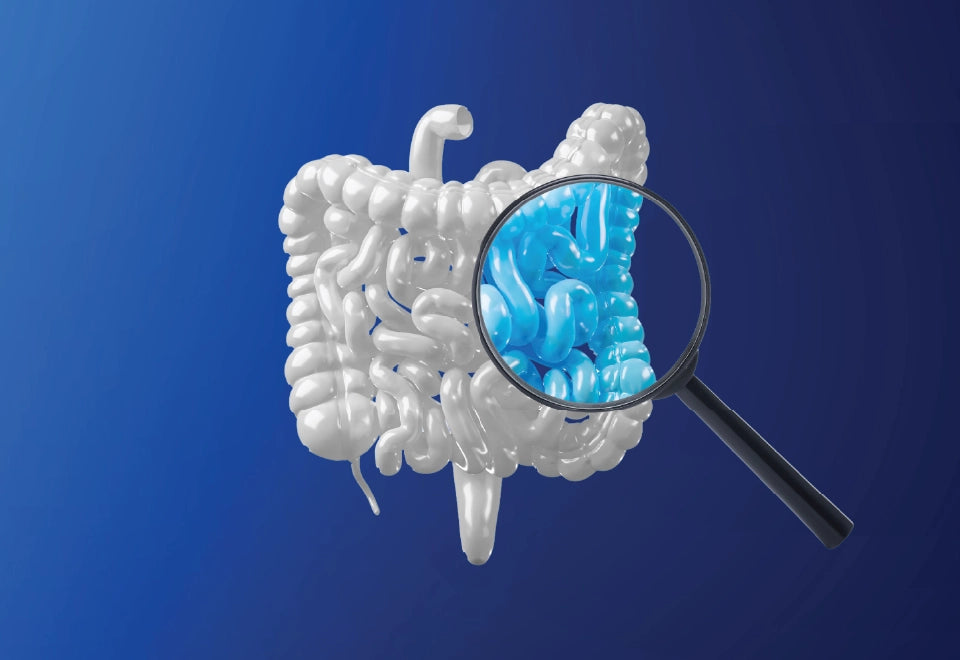Elimination diets can quickly improve digestive symptoms but may reduce gut microbiome diversity. While these diets help identify food sensitivities, they can also deplete beneficial bacteria and lower short-chain fatty acid (SCFA) production. To maintain gut health during elimination diets:
- Work with a healthcare professional to avoid long-term nutrient deficiencies.
- Include probiotic and prebiotic foods like yogurt, garlic, and bananas.
- Reintroduce foods gradually to monitor reactions and restore microbiome balance.
Research shows gut microbiome diversity is linked to overall health, with diets rich in plants and fiber supporting better gut function. Tailored nutrition plans and microbiome testing can help preserve diversity while addressing sensitivities.
Immediate Changes to Gut Bacteria
Within just 24–48 hours of starting an elimination diet, noticeable shifts happen in the gut microbiome at both the species and family levels [1].
Early Bacterial Changes
The gut microbiome responds quickly to dietary changes. Research shows that altering fiber intake can impact about 15% of the microbial community within a day [1]. This rapid response highlights how sensitive the gut is to what we eat.
| Timeframe | Bacterial Changes |
|---|---|
| 24 hours | Metabolite production begins to shift |
| 24–48 hours | Species and family-level changes occur |
| Post-diet (3 days) | Microbiome returns to baseline composition |
Quick Health Improvements
Cutting out trigger foods can bring fast relief. Symptoms like gas, diarrhea, and general discomfort often improve as problematic microbes are "starved". Early benefits include:
- Less gas
- Reduced diarrhea
- Greater digestive comfort
- Improved bowel regularity
"Starving them is one way to reduce them." – Cleveland Clinic
That said, these benefits might come with a temporary dip in microbial diversity.
Short-term Diversity Loss
A 2018 review found that while fiber-specific interventions can increase beneficial bacteria like Bifidobacterium and Lactobacillus, overall diversity in the gut stays the same [1]. Another study observed a shift toward amino acid fermentation during an animal-based diet, with the microbiome returning to baseline within three days [2]. Diet is thought to account for over 50% of microbial changes in mice and about 20% in humans [1].
This shows how much diet influences gut health. To avoid long-term harm while on an elimination diet, it's crucial to maintain essential nutrients. Consulting a healthcare professional can help balance dietary goals with gut microbiome health.
Long-term Effects on Gut Health
Prolonged elimination diets can lead to lasting changes in gut health, particularly affecting the gut microbiome's composition and function.
Missing Good Bacteria
Extended elimination diets can deplete beneficial bacteria in your gut. In healthy adults, bacteria like Bacteroidetes and Firmicutes play a key role in maintaining gut health, but these populations can drop significantly with long-term dietary restrictions [3].
| Bacterial Group | Primary Function | Impact of Long-term Elimination |
|---|---|---|
| Bacteroidetes | Helps break down polysaccharides and absorb calories | Decreased abundance |
| Firmicutes | Produces short-chain fatty acids (SCFAs) | Reduced populations |
| Bifidobacterium | Supports the immune system | Significant decline |
| Lactobacillus | Maintains digestive health | Notable reduction |
Bacterial Balance Changes
Long-term dietary restrictions can disrupt the delicate balance of gut bacteria. Research on Chinese adults found that overall diet quality is closely tied to microbiome diversity (α-diversity) [4]. Low microbial diversity has been associated with health issues like obesity and diabetes.
"Microbiota-targeted diets can change immune status, providing a promising avenue for decreasing inflammation in healthy adults."- Christopher Gardner, PhD, Rehnborg Farquhar Professor and director of nutrition studies at the Stanford Prevention Research Center
Additionally, diets high in processed or animal-derived foods may increase bacteria like Firmicutes and Ruminococcus, while reducing those that thrive on plant-based nutrients [5].
Decreased SCFA Production
Elimination diets often cut out key fiber sources, which can reduce the production of short-chain fatty acids (SCFAs). These compounds are essential for gut health. A study found that diets rich in whole plants, providing around 45 grams of fiber daily, significantly boost SCFA levels [6]. Without enough fiber, the gut's ability to ferment carbohydrates and support enzymatic activity declines. This can also lead to an increase in mucus-degrading organisms.
Unfortunately, these changes may not be fully reversible. Simply reintroducing fiber often fails to restore the lost bacterial species [6].
sbb-itb-55c436e
Better Options: Custom Nutrition Plans
Tailored nutrition plans offer a way to address sensitivities without compromising microbiome diversity.
Gut Testing for Diet Planning
Gut microbiome testing uses DNA analysis of stool samples to map out your gut bacteria. For example, Decode Age's Decode Biome test evaluates over 30 gut health markers to pinpoint bacterial imbalances and food sensitivities.
Test results can provide insights such as:
- Imbalances in gut bacteria linked to symptoms
- Foods that may cause inflammation
- Bacteria that could benefit from support
- Suggestions for personalized diet
These findings help create a diet that supports gut balance and variety.
Building a Varied Diet
A 4-day rotation plan can help identify food triggers while ensuring you get a mix of nutrients. Here's an example of how to diversify meals:
| Day | Protein Sources | Fiber Sources | Fermented Foods |
|---|---|---|---|
| 1 | Fish, legumes | Leafy greens, onions | Yogurt |
| 2 | Eggs, quinoa | Asparagus, bananas | Kimchi |
| 3 | Poultry, nuts | Garlic, leeks | Miso |
| 4 | Grass-fed beef, seeds | Root vegetables | Sauerkraut |
"When we stop adhering to limited dietary dogmas and welcome a variety of whole foods into our diet, we dramatically decrease the number of food intolerances we have." - Nick Kowalski, Transformational Coach
Adding variety to your diet, along with targeted supplements, can strengthen gut health.
Adding Pre- and Probiotics
Include prebiotic-rich foods like garlic, onions, asparagus, bananas, whole grains, and leeks, alongside probiotics found in yogurt, kefir, sauerkraut, and kimchi. Drinking polyphenol-rich beverages can also encourage the growth of beneficial bacteria like Bifidobacteria and Enterococcus, which may help reduce inflammation. Key probiotic strains to look for include Lactobacillus acidophilus, L. rhamnosus, and Bifidobacterium longum.
Adding Foods Back Safely
After completing an elimination diet, it’s important to reintroduce foods carefully to help maintain gut health and diversity.
Step-by-Step Food Reintroduction
Reintroducing foods usually takes about 2–3 weeks per food group. Here’s a common approach to testing foods you’ve eliminated:
| Day | Action | What to Look For |
|---|---|---|
| 1–2 | Eat the food twice daily | Check for immediate reactions |
| 3 | Skip the food | Watch for delayed symptoms |
| 4 | Decide to continue or test another food | Record any changes |
Start with small amounts and slowly increase. For example, if testing dairy, begin with a small serving of yogurt. Keep a food diary to track symptoms and reactions. You can also monitor your gut’s response with specific testing to refine the reintroduction process.
Monitoring Gut Health
Modern gut testing can help track changes in bacterial composition and diversity. These tests help identify which foods your gut tolerates and which may cause issues. For instance, Decode Age offer advanced gut microbiome test for personalized insights. After testing, you might consider additional support to stabilize your gut microbiome.
Using Supplements
During this phase, supplements like probiotics (e.g., L. reuteri and B. infantis [7]) and prebiotic fiber can help maintain microbial balance. These supplements may strengthen gut barriers, reduce harmful bacteria, increase SCFA production, and support your immune system.
Conclusion
Elimination diets can help identify food sensitivities, but they may also reduce gut microbial diversity, which could affect overall health. Research shows that 75% of the global food supply comes from just 12 plant types and five animal species, underscoring the importance of managing dietary restrictions with care.
For individuals with IBS, exclusion diets have been linked to noticeable changes in gut bacteria, such as increased levels of Lachnospira and decreased levels of Eubacterium [8]. These findings highlight the need for careful planning during both the elimination and reintroduction phases of such diets.
A diet rich in plants, fiber, and polyphenols has been shown to support both gut and mental health [9]. Adding fermented foods like yogurt, kefir, and kimchi can also boost microbial diversity and lower inflammation. A 2021 study from Stanford School of Medicine confirmed these benefits, showing that fermented foods improved gut diversity and reduced inflammatory markers.
Maintaining a varied diet is key to gut health. Decode Age provides advanced gut microbiome testing and personalized nutritional advice to help preserve a healthy gut ecosystem while addressing individual dietary concerns. Their tools are designed to support optimal gut health tailored to your unique needs.
FAQs
How do elimination diets impact gut microbiome diversity?
Elimination diets can reduce gut microbiome diversity by limiting the variety of foods consumed, which may decrease beneficial bacteria and short-chain fatty acid (SCFA) production. However, they can also provide relief from digestive symptoms by removing trigger foods.
How quickly do gut bacteria change on an elimination diet?
Changes can occur within 24–48 hours. Research shows that dietary modifications can alter the gut microbiome at both the species and family levels, with metabolite production beginning to shift within a day.
What are the short-term benefits of an elimination diet?
Elimination diets can quickly reduce symptoms like bloating, gas, diarrhea, and inflammation by "starving" problematic bacteria and removing irritants from the gut.
How does fiber intake affect gut bacteria during elimination diets?
Eliminating high-fiber foods can reduce SCFA production, which is essential for gut health. Including alternative fiber sources (e.g., root vegetables, nuts, seeds) can help maintain microbial balance.
Can gut microbiome testing help with elimination diets?
Yes, gut microbiome tests analyze bacterial diversity and identify potential imbalances. This can help create a personalized diet plan that minimizes negative impacts on gut health while addressing food sensitivities.


























Leave a comment
All comments are moderated before being published.
This site is protected by hCaptcha and the hCaptcha Privacy Policy and Terms of Service apply.